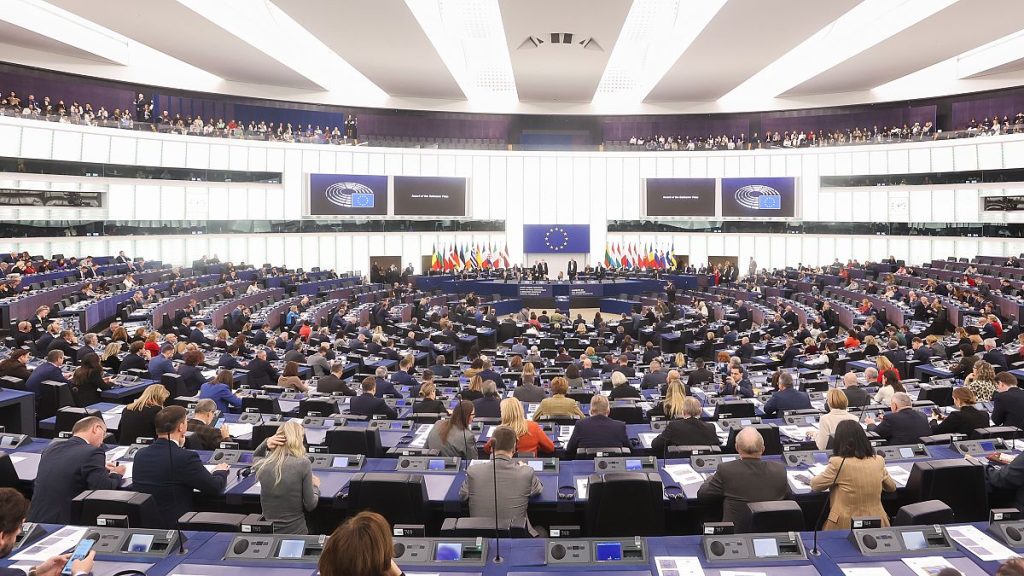Summarize this content to 2000 words in 6 paragraphs
Although informal, parliamentary intergroups are a mirror of Europe’s ever-changing priorities—part tradition, part reinvention, and occasionally, a little bit of whimsy.
As the European Parliament embarks on a new legislative mandate, fresh topics are set to capture the attention of MEPs and bring new Parliamentary ‘intergroups’ to life.These intergroups—informal networks of MEPs from different political groupings—focus on specific issues, often with input from civil society.Although not official parliamentary bodies, intergroups are formally recognised by the Parliament and established at the start of each term.For this tenth legislative term, political groups have approved a list of 28 intergroups. Many are being set up this week in Strasbourg, with launch events expected to take place alongside the plenary sessions.It’s important to note, as the European Parliament clarifies on its website, that intergroups are distinct from “friendship groups”- another more clubbable type of Parliamentary grouping – even if some of their names suggest they might be a lot of funTo illustrate how MEPs’ interests and engagement with various issues have evolved, Euronews has curated a selection of intergroups—both new and long-standing—from past and present mandates.The most inclusive LGBTQ+ group in historyThe European Parliament’s LGBTQ+ intergroup, confirmed for the fourth time in a row, has come a long way in its journey toward inclusivity.When it first began, it focused solely on lesbians and gays, even if it’s title “Lesbian and Gay” suggested it consisted of one of each. By the seventh legislative term, the group had expanded to include bisexual and transgender individuals, becoming the LGBT intergroup.In 2014, “I” was added to represent intersex people, but now that’s been replaced by a “+” symbol, a small change designed to carry a big message: nobody is left out.Historical IntergroupsSome intergroups have history on their side—quite literally. One focuses on promoting the Camino de Santiago pilgrimage routes and has since broadened its scope to cover other European cultural routes and heritage.Other enduring intergroups sport distinctive names. SEARICA, for example, tackles seas, rivers, islands, and coastal areas, while ARDI focuses on anti-racism and diversity. But not all historical groups survived this term.Another intergroup with its own name, the RUMRA dedicated to rural, mountainous, and remote areas since 2014, did not make the cut this time.Then there are some evergreen intergroups, like those on Sky and Space or Welfare and Conservation, which have been around for several decades and seem destined to outlive us all.Intergroups not spared by political guidelinesSome new intergroups naturally stem from themes expected to dominate the EU’s agenda in this term. For instance, competitiveness is front and centre with the new intergroup ‘Attracting Investment to Ensure a Competitive and Sustainable EU’ whose title might have been dubbed by Mario Draghi himself.Others leave a little more to the imagination. Take the new ‘Police’ intergroup for example—will it focus on tackling police violence or advocating for better protection for law enforcement? Or perhaps it’s a secret fan club for The Police, the legendary English rock band. (We’re still waiting to find out.)Meanwhile, mental health has finally earned its own intergroup, reflecting its rising prominence across policy discussions. First-timers like the resilience, disaster management, and civil protection intergroup are also stepping onto the scene.The ‘cancelled’ onesAs new intergroups emerge, others inevitably fade away. The Green Deal intergroup, active from 2019 to 2024, has been shelved for this term—apparently, nobody volunteered to carry the torch of the flagship initiative of the past mandate.This isn’t unusual. Many intergroups have lived short, dramatic lives, surviving only a single term. Remember the eighth legislative mandate’s “Media” and “New Media” intergroups? They lasted no longer than a trending tweet.Another group called ‘Family, children’s rights, and bioethics’ also struggled to make it past a single term.Geopolitical IntergroupsSome intergroups have faded due to shifting political priorities, particularly those dedicated to specific geopolitical areas.Take the intergroup on Tibet, which ran for a decade before vanishing in 2014, or the Western Sahara group, which has also dissolved now after a decade.As political tides shift, new groups emerge. This term, a new intergroup titled “The Two-State Solution for Israel and Palestine” has been introduced, reflecting the Parliament’s evolving geopolitical focus and the shifting of interest in the broader geopolitical arena.
Keep Reading
Subscribe to Updates
Get the latest creative news from FooBar about art, design and business.
© 2025 Globe Timeline. All Rights Reserved.


